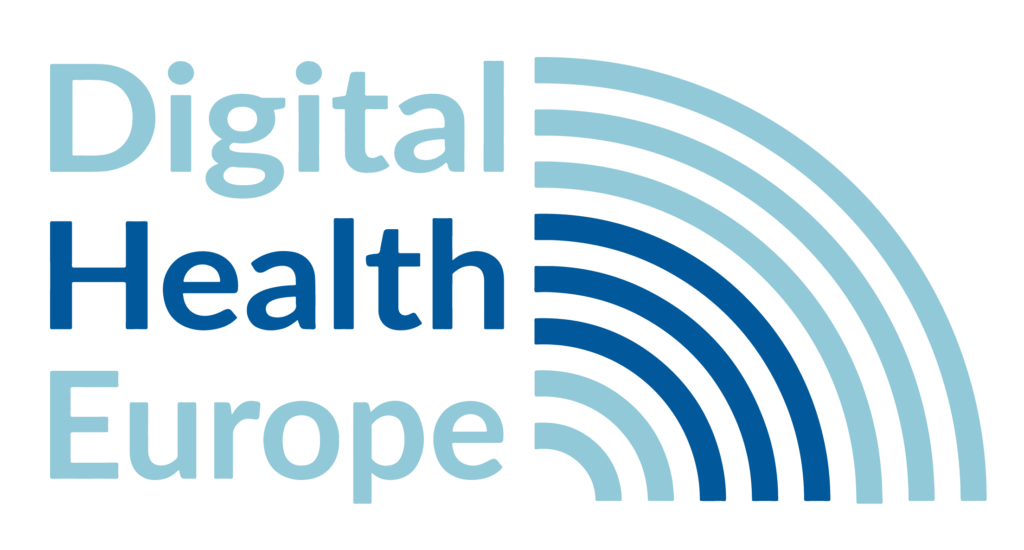
The Digital Health Europe Summit 2021 brought together a large number and wide variety of stakeholders for inspiring and forward-looking debates to provide a vision of the future of digital health and care.
Topics covered ranged from real-life transformation through digital health (Day 1), via empowering citizens (Day 2), to scaling up innovation through health data (Day 3). During the three days of the Summit, 50 speakers shared their views in twelve sessions. The conference overall attracted more than 400 unique attendees.
The Summit was kicked off by Marco Marsella (DG CNECT, Head of Unit for eHealth, Well-Being and Ageing) who reflected on the importance of the topic of digital transformation of health and care and the European Commission’s support to Member States for making it a reality. Dr Birgit Morlion (DG CNECT, DHE Project Officer) presented the policy context of digital health and care across Europe. She reflected that digital transformation is more about people than technology. It should be very people-centric, backed up by leadership and radical systemic change.

Mr Esko Aho (Former prime minister of Finland) delivered the opening keynote speech and emphasised that in the past months of 2019-2020, achievements made in telehealth and telemedicine have been seen that had previously typically taken ten years to accomplish. He expects no return to ‘normal’ but instead a continuation in the increased interest in moving forward faster. The introductory session ended with a short glimpse into the DigitalHealthEurope project by Dr Veli Stroetmann (empirica).
In the session dedicated to digital transformation through replication of European best practices in health and care, DHE’s twinning partners shared their first-hand experience with the scheme and their thoughts on scaling up best practices through collaboration and partnership building in the digital health and care ecosystem. Furthermore, they discussed the different support services offered by DHE. DHE has funded 21 twinnings focusing on various topics related to the digital transformation of health and care.
The session on sustainable approaches took stock of horizontal and vertical challenges of scaling-up, knowledge sharing and capacity building in a sustainable way, and the skills and capacities necessary to overcome the challenges incurred. The panel speakers agreed that it is essential to enhance policy-oriented learning, strengthen interaction with stakeholders and engage new stakeholders at all levels.
Day 2 of the Summit focused on the empowerment of citizens through health data. The first session of the day examined patient-centred health and care. The panellists stressed that access to digital health is unequal for different societal groups and organised in different ways across Europe, a challenge that COVID-19 exacerbated. They also put forward recommendations to foster patient empowerment as well as cooperation between patients and healthcare professionals.
The following debate on citizen-centred health data sharing highlighted the need for adequate governance models. Insights from a large-scale survey on citizens’ attitudes towards health data sharing conducted as part of DHE served as a basis for the discussion and demonstrated the widespread willingness of citizens to share their health data for research.
The session on accelerating health data connectivity discussed the heterogeneous levels of connectedness between health organisations and between health organisations and citizens/patients in Europe. The experts concluded that citizens are key actors to accelerate health data connectivity, but they need to be empowered to achieve this.
The final session debated solutions for on-demand access to federated datasets and cloud computing resources and how these can accelerate the digital transformation of health and care, a topic also examined in DHE. Barriers such as a lack of legal requirements and clarity about what involves sharing algorithms, data harmonisation, and the costs of FAIR data were highlighted by the experts. The panel speakers agreed that it is necessary to invest further and enhance support from policymakers for a federated future.
The focus of the Summit’s final day was on scaling up innovation through health data. The keynote speaker Ioana-Maria Gligor (Head of Unit at DG SANTE), gave the audience an update on the European Health Data Space. This keynote speech enabled a lively panel discussion on improving data in Europe for promoting research, preventing disease and personalising health and care, a key topic of numerous DHE papers. The panellists offered their views on the most urgent challenges in health data. Pressure points mentioned ranged from digital skills of patients and health professionals to governance and valorisation models to a “data first” approach.

The second panel of the day focused on the future of innovation through health data. The five panellists each offered visions on how health data can be used to begin and build on exciting innovations. Perspectives included tackling Europe’s sovereignty, tying in with health infrastructures and actions of local governments, bringing computation closer to the data and considering the links to areas beyond health.
Finally, Marco Marsella discussed the central question of Europe’s ambitions for what’s likely to happen next for digital health. The Head of Unit mentioned taking advantage of the lessons learnt during COVID-19, such as furthering the collaboration with other DGs and aiming for a more harmonised approach between the Member States and the EU.
Recordings of the Digital Health Europe Summit are available at https://digitalhealtheurope.eu/dhe-summit/.
To learn more about the results of the DigitalHealthEurope project, visit https://digitalhealtheurope.eu/.
